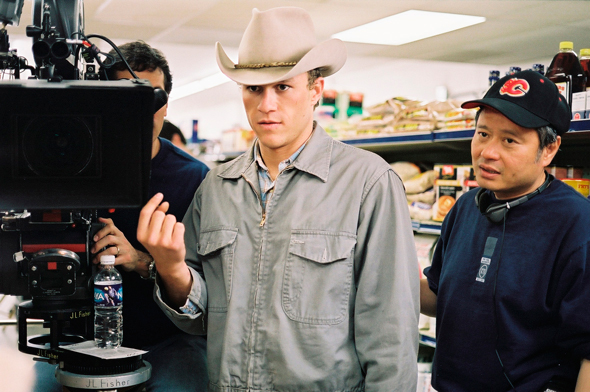
NBC Universal’s specialty arm has been “loving on” indie filmmakers and audiences for nearly a decade. We go in search of what makes Focus Features so special
Few studios/distributors get more out of the Sundance Film Festival than Focus Features.
“The caliber of films they pick up is very in line with the films we launch,” says John Cooper, the festival’s director. “In past years they have acquired more films than they have premiered.” At the 2010 festival, Focus acquired The Kids Are All Right ($24,616,279, global box office), and premiered It’s Kind of a Funny Story ($6,363,628).

Focus was created in 2002 after a three-way merger between Good Machine, USA Films and Universal Focus. Today, it operates as the “art house” division of Universal Pictures, producing and distributing its own titles and distributing foreign films, as well. Though its releases are hardly formulaic, the company’s business model ensures its success at festivals like Sundance and in the larger marketplace.
“First, they generally work with well-established talent, who they can be sure will connect with audiences,” says Bruce Nash, owner of Nash Information Services, LLC, a box office analysis firm and developer of OptiData. Leading men in Focus-released movies have included George Clooney, Ralph Fiennes and Sean Penn; leading ladies have been everyone from Cate Blanchette and Annette Bening to Julianne Moore and Renee Zellweger. Marquee directors (like Sofia Coppola and Ang Lee) frequently work with the studio, as do top-flight DPs like Rodrigo Prieto, ASC, AMC; Roger Deakins, ASC, BSC; and Edward Lachman, ASC.

“There are a lot of very intelligent people working there who are concerned with making good movies first and making money second,” notes cinematographer (and long-time Sundance veteran) Andrij Parekh, who shot 2010’s It’s Kind of a Funny Story. “They know a good movie will make money. [That] allows for more risk-taking and therefore more creativity. Making movies is hard work, and making independent features is even harder.” Low budgets, tight schedules and a certain appeal mean that “the people making them have to really love them. And Focus does.”
Cinematographer Martin Ruhe, who made his first U.S. feature, The American ($45,689,195) with Focus, says the dedication to the craft of making high-quality independent films permeates the entire company from executive offices to post-production suites. “The creative team at the top understands that original filmmaking comes from the themes and stories you choose and from the vision of the director. They look for talent and give them space which is great,” Ruhe explains. “I have never worked on a production where there was so much input and understanding about every aspect of the filmmaking. Just to have somebody like Jeff Roth [Focus’ vice president of post production] was great. From choosing the lab to every step in the post production, which of course has an impact on how you shoot things, is fantastic and helps to walk in the right direction with everybody being on the same page.”

Another key is the company’s savvy business model, which takes a measured approach to releases and relies heavily on festivals to generate buzz. ”Even their wide releases open in only about 2,500 theaters, which allows them to spend their marketing dollars effectively,” Nash says. “This means they don’t have out-and-out blockbusters but they also don’t have many expensive misfires.”
Smart festival marketing entices a larger audience to smaller films, like 2008’s Milk ($50,164,027) or 2004’s The Motor Cycle Diaries ($39,356,372). Focus’ strong domestic and international distribution network enables the studio to reach additional markets, further driving revenue. Where other specialty distributors (Warner Independent, Paramount Vantage, and Picturehouse) down through the years have been shut down or absorbed by their studio parents, Focus has survived and even prospered. But perhaps the most important element of the company’s success is an understanding of great material, strong characters and solid storytelling. As Sundance’s Cooper puts it: “They just have good taste.”

Yet taste and talent alone still doesn’t account for the kind of financial and critical acclaim, Focus produced and/or distributed movies have enjoyed over the last decade. A small sampling includes astonishingly productive global box office numbers (see below), as well as 58 Oscar® nominations and 19 Oscar® winners!
2003 Lost in Translation $106,454,000
2000 Billy Elliott $109,280,263
2005 Pride & Prejudice $120,918,508
2005 Coraline $124,062,750
2007 Atonement $129,425,746
2008 Burn After Reading $163,415,735
2005 Brokeback Mountain $180,343,761

Clearly the people who run Focus have a nose for quality independent product that is capable of playing to a much wider audience traditionally associated with Sundance movies. Or as Nash explains: “Their strategy has worked well historically because ‘smaller’ films with familiar faces tend to do well on video and DVD, even if they aren’t huge in theaters.”

By Margot Carmichael Lester

